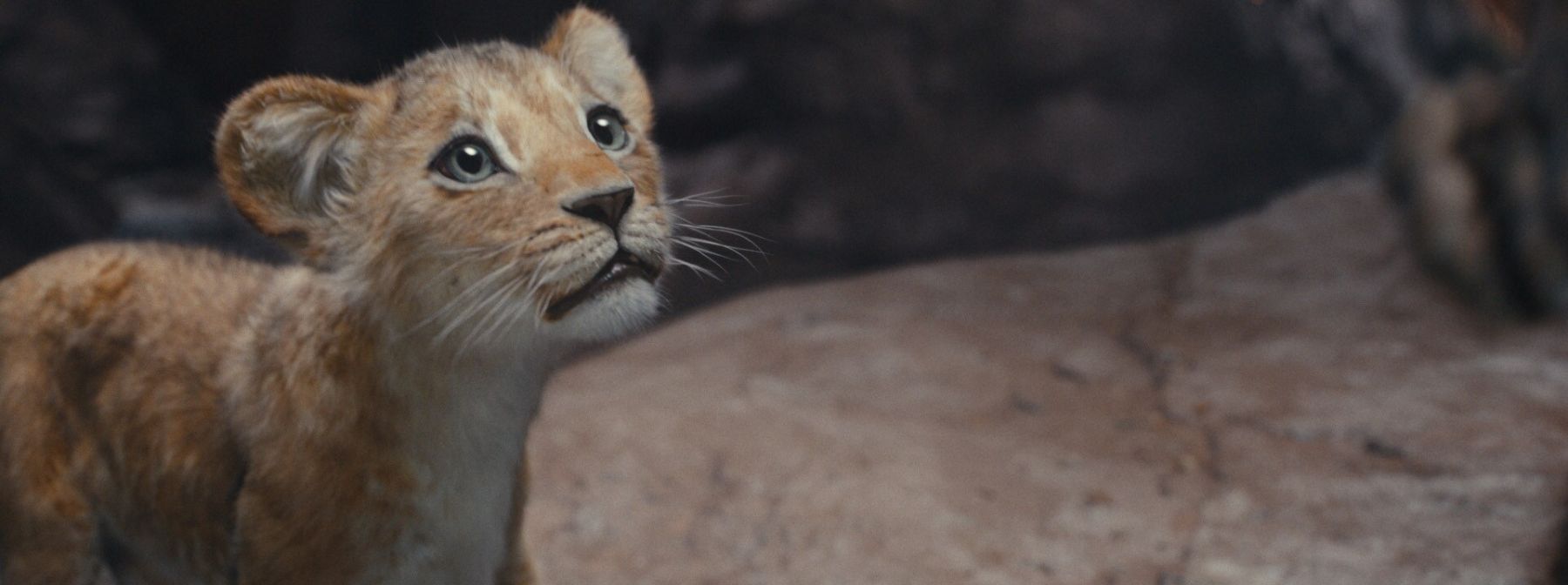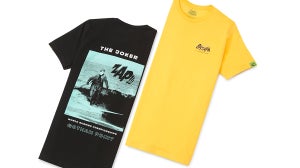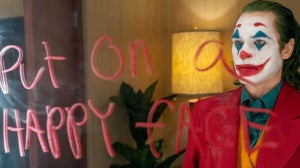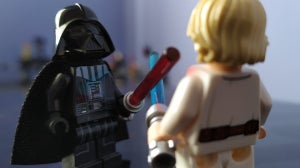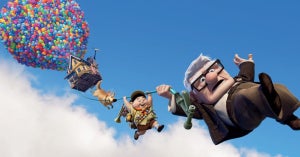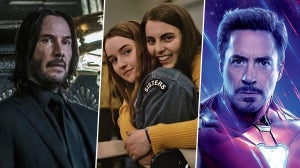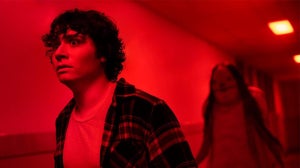
“I’ve got to be honest, when I first read the script, I felt that it was a stripped-down drama”, the director told Zavvi. “I think the reason people say this story format has its roots in Shakespeare is because when you think about his work, it’s all about dialogue, be it conversations or monologues, and if you pull the curtain back on these CGI lions, it’s identical.
“This is a story which explores the very rigid social dynamics around royalty, and those who do and don’t belong in its orbit. For me, the magic trick of the movie was to erase all that pomp and circumstance and realise this is a stripped-down drama about the bond between two brothers, and the way that evolves so one becomes the best version of themselves, and the other the worst.
“The technology that we made the film with was just an extra step, which we didn’t want to let get in the way of the stripped-down drama. So much of the process was breaking down each conversation, trying to communicate the full weight of their changing relationship via small gestures like lifting their head, or stepping away.”
This is perhaps the reason why Mufasa: The Lion King, a prequel which reveals how a young Mufasa (Aaron Pierre) and Scar (then known as Taka, voiced by Kelvin Harrison Jr.) went from surrogate brothers to rivals, feels a lot different to the usual live-action Disney formula. He doesn’t short-change audiences on the music or the action which they would expect from a CGI reimagining of a beloved hand-drawn animated world, bringing it to life with a more vivid, photorealistic attention detail, but the spectacle is grounded within an exploration of changing family dynamics.
When Jenkins was first offered the chance to direct Mufasa, he assumed he’d turn down the job. It was only when his partner, The Farewell director Lulu Wang, insisted he at least read the screenplay before calling his agent when he decided to give it a chance; after assuming he’d read five pages of the script before rejecting the offer, he realised by page 50 that he needed to make it.
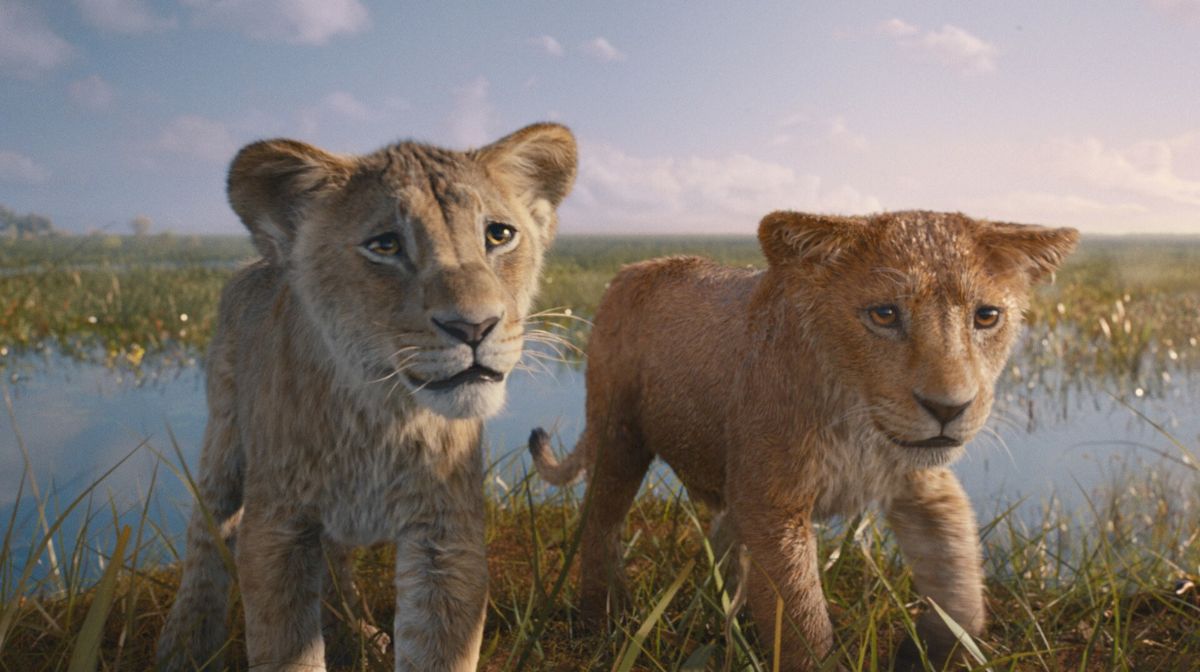
“There was a series of scenes which spoke to me”, he continued. “There’s a moment where this very calamitous thing happens, and you realise that Taka and Mufasa need each other and must go on a journey together.
“Having the advance knowledge of where that relationship ends up whilst reading about them running towards the sunset was deeply moving to me. It recontextualised what I’ve thought about these characters for the past 25 years – it was so rich and meaningful, I knew I had to take the job.”
As a teenager when The Lion King was originally released, Jenkins didn’t catch it on its original cinema run. However, when he saw it a few years later, that experience proved powerful.
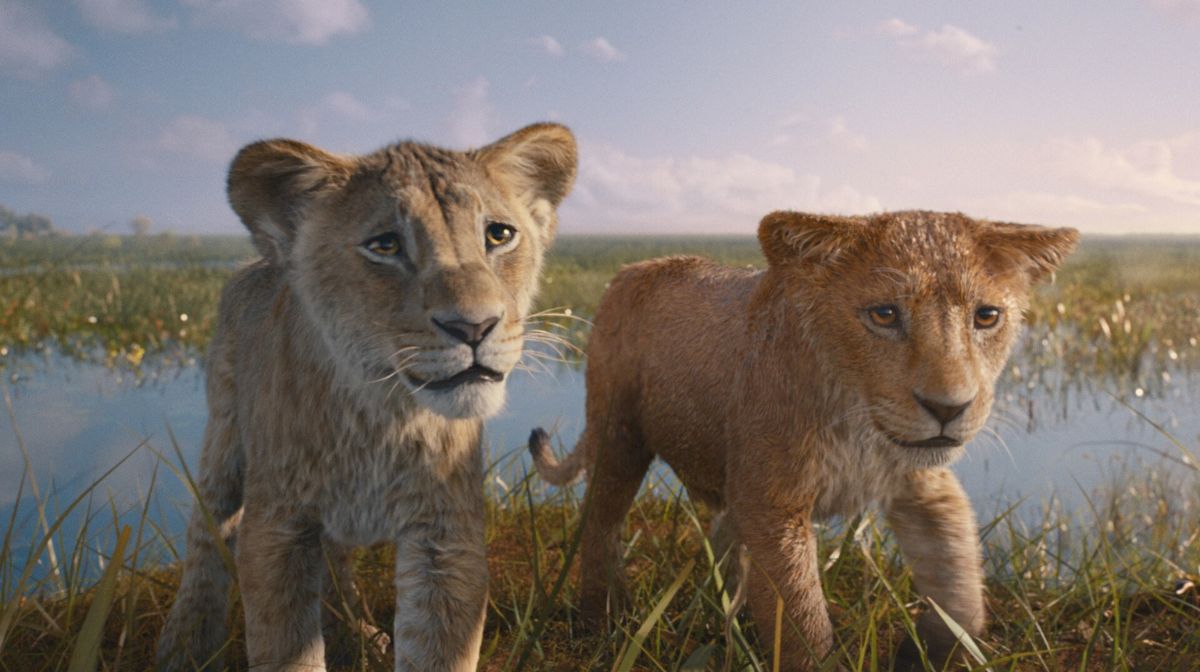
“I’m a child of the VHS/DVD generation, and I was living with my sister, who was a single mum. The Lion King was the movie that my nephews wanted to watch the most, and it struck me that every time the saw it, they had to process the complex emotion of what it would be like to lost a parent – before I even realised I wanted to be a storyteller, I recognised a powerful storytelling tool within the film.
“Disney movies are the bedrock of many of our childhoods for that reason; they’re wonderful adventures which tackle serious subject matter and have honest emotions within them. I wasn’t watching Claire Denis movies as a 14-year-old and starting to think about being a filmmaker that way – the spark to tell stories first came from seeing movies like The Little Mermaid, Lady and The Tramp and Bambi.”
Mads Mikkelsen, who voices villain Kiros – the leader of a tribe of white lions intent on killing Mufasa’s clan – will soon be bingeing classic Disney movies again, as he’s just become a grandfather. His daughter’s favourite movie is Bambi, and being part of a Mouse House animation was a bucket list achievement.
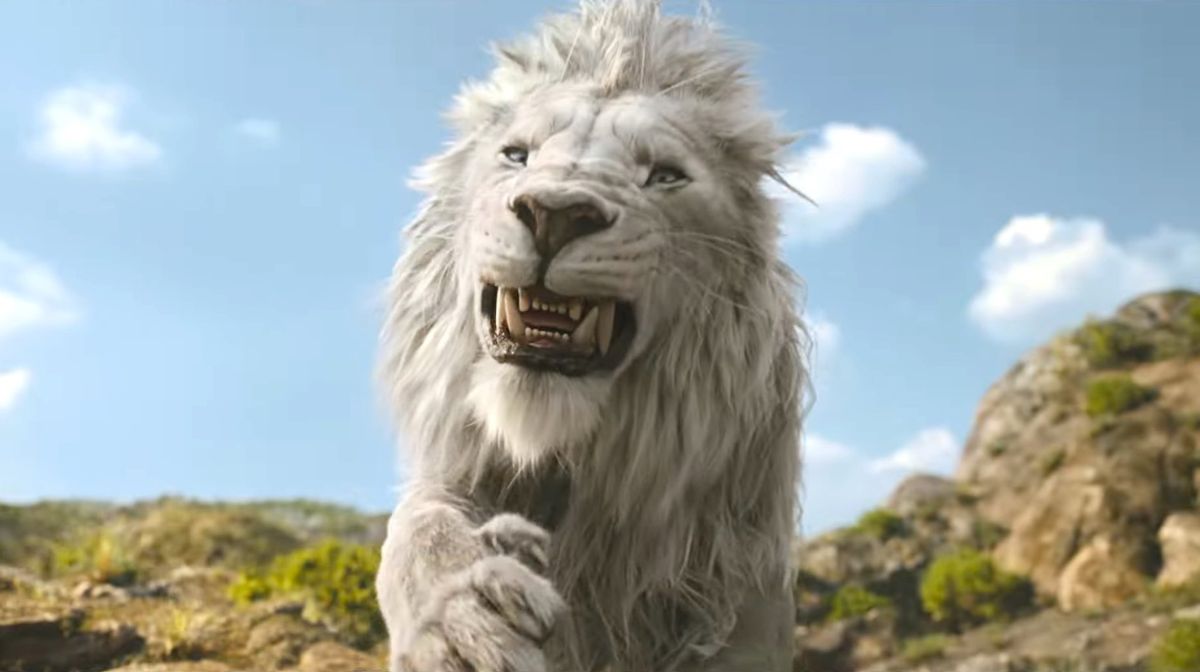
He told Zavvi: “My granddaughter wasn’t around when I started this project, only in the back of my mind did I think I was doing it for a future grandkid! My kids are past the period of thinking that it’s cool when I’m in a movie they might see, but now I can impress the grandkids with that.
“Our household was a big Disney household, and my kids would watch all of the TV shows; I vividly remember getting stressed watching all the cartoons with them during that period, noticing that they had six to eight more edits per scenes than one of their older films would. You watch something like The Jungle Book next to that, and it has a slower pace in comparison, which almost hypnotises kids – there's a poetry to that which you won’t find in the modern day.”
Jenkins is throwing back to that earlier, less frenetically paced era of Disney animation here, although that isn’t to say there is a lack of energy. There’s a soundtrack of original songs by Lin-Manuel Miranda, and the movie makes history for making Mikkelsen sing on screen for the first time.
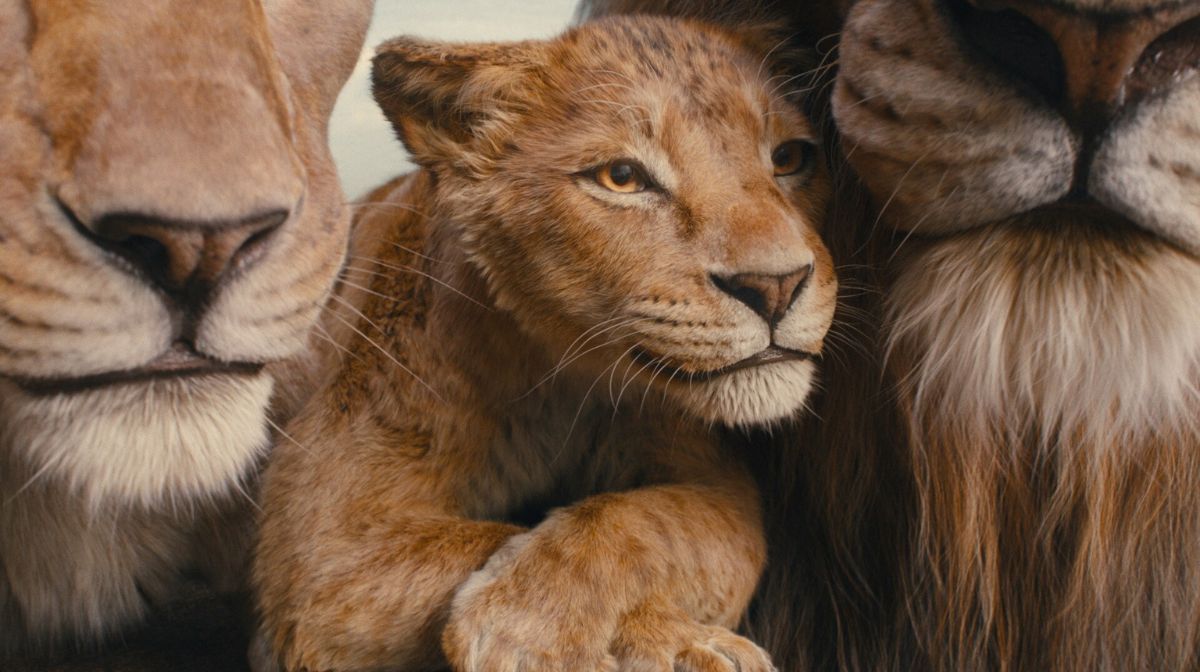
“I didn’t get a chance to overthink singing onscreen. I took the movie because I liked the story, and I loved the opportunity to work with Barry, but it was only when we were virtually shaking hands at the end of my dialogue recording where he said, “by the way, you know you’re singing, right?”
“It was nerve wracking at first, but once I got past the first 30 minutes of that session, I could finally let loose and have fun with it – I was standing in the middle of Abbey Road Studios and embracing my inner baddie lion.
“All of us sing to ourselves in the shower, or sing lullabies to our kids, so it wasn’t a new skill, but learning to perform was a different experience altogether. However, when I got up there, I knew there was no way I could hold back, and the people around me were very good at persuading me to go further, reminding me it wasn’t about me singing but the lion!”
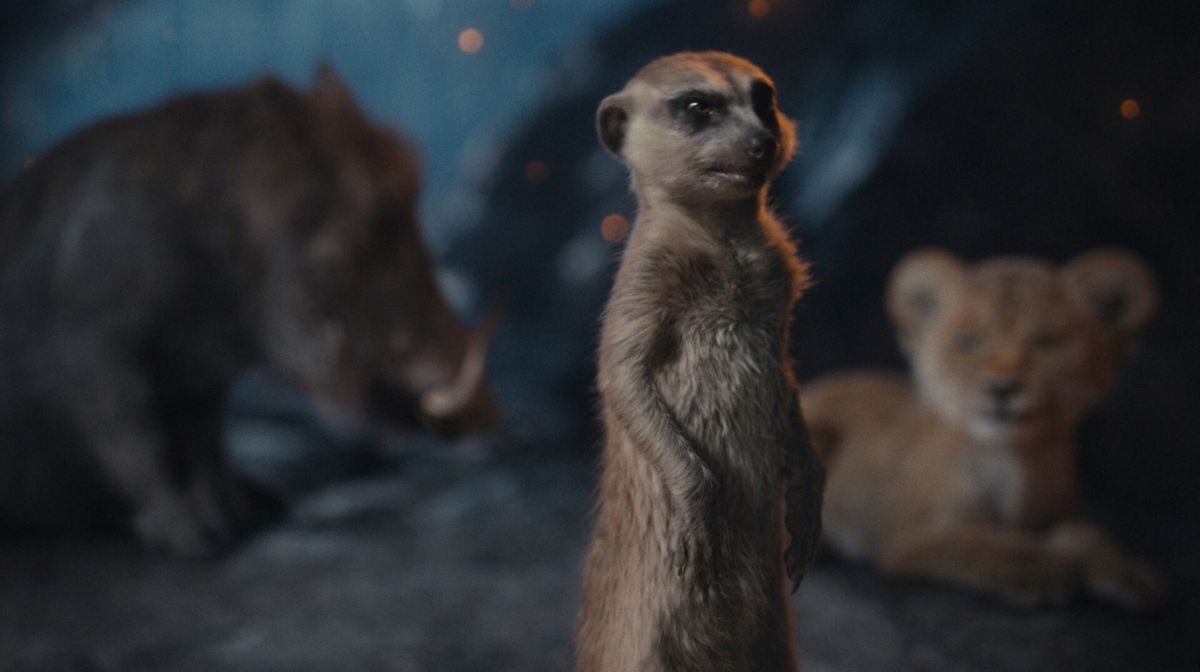
Despite being a prequel, Timon and Pumbaa (Billy Eichner and Seth Rogen) return as narrators, breaking the fourth wall as Rafiki (John Kani) tells the story of Mufasa and Scar to Simba’s young daughter Kiara (Blue Ivy Carter). The wisecracking meercat and warthog duo were favourites from the 2019 remake and are the returning characters with the most screentime here – something which delighted Eichner, who is now far more comfortable voicing the lovable sidekick.
He told Zavvi: “Making the last film was intimidating, as we were stepping into the shoes of iconic voice performances from Nathan Lane and Ernie Sabella, and we worked for weeks with (director) Jon Favreau to figure out what our take on the characters would be, and what my dynamic with Seth would be. This time, we’d established that, and Barry encouraged us to improvise and riff a lot, almost letting us treat it like we’re in a traditional live-action comedy together.”
The pair’s dynamic is aided by the fact they’re always in the recording booth together – a rarity in animation, where dialogue recording tends to work around actor’s schedules, often meaning that actors don’t meet any of their co-stars until the press tour. This time, Jenkins ensured Eichner and Rogen would always be paired once again, encouraging them to ignore the script as much as possible.
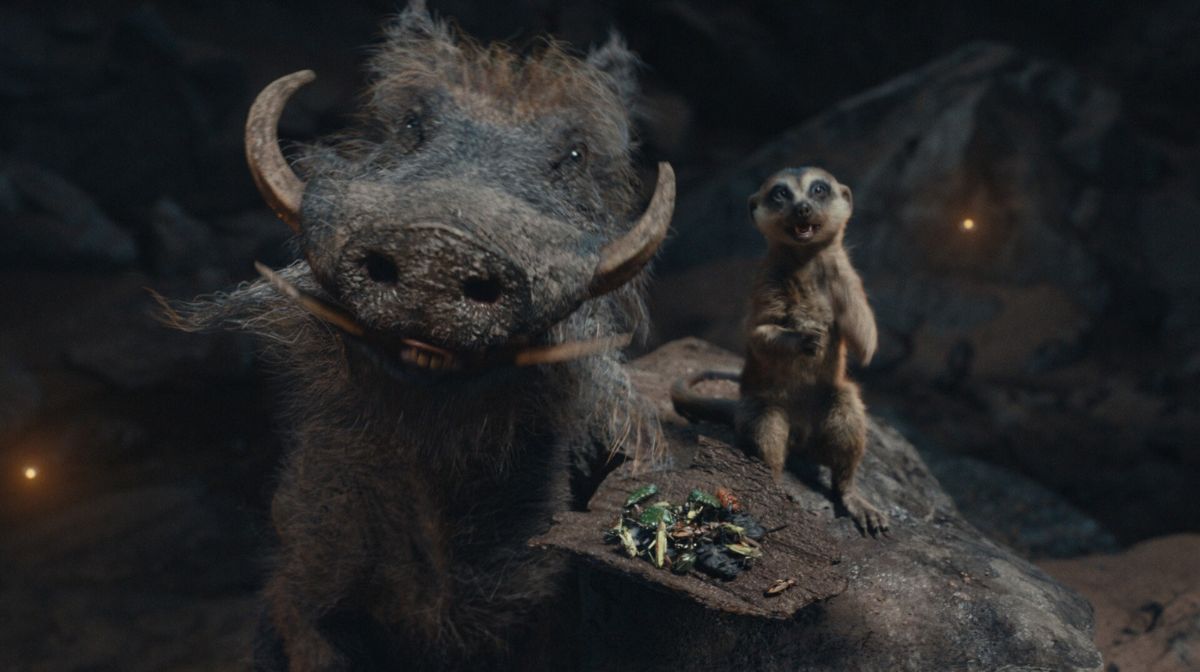
“I think about 90 to 95% of Timon and Pumbaa’s dialogue in the movie was what we improvised in the booth, which is always surprising. It’s rare in a big, animated epic like this that animators have to work around whatever nonsense me and Seth Rogen are saying in a booth one day, and even rarer that this all ends up in a Disney holiday movie people will watch all over the world – I just hope people feel the spontaneity of it while they’re watching it.”
For a British viewer, the level of meta improv often has the riotous, chaotic spirit of pantomime – to a global audience, it likely feels like a far more family friendly version of Deadpool’s fourth wall breaking.
“We probably step over the line when recording, but we know what movie we’re making so try not to get TOO wildly inappropriate”, Eichner added. “But the team do encourage us to make Timon and Pumbaa more meta; there are times when we’re there to speak to the adults in the room as much as the kids.

“Timon gets to reference the Broadway show and not having a real song in the movie. We also got to improvise our own song, and we need to make sure Lin-Manuel doesn’t get credit for that, we came up with that on our own!”
Eichner and Rogen never expected to return to these characters, but after making an unexpected comeback in a prequel, they are now eager for the chance to reprise their roles.
“I love doing Timon, and now that we have our chemistry established, we’d be more than happy to return if people demanded it. People need to get out and march on the streets and let the Disney Corporation know this must happen!”
Mufasa: The Lion King is released on Friday, 20th December.
